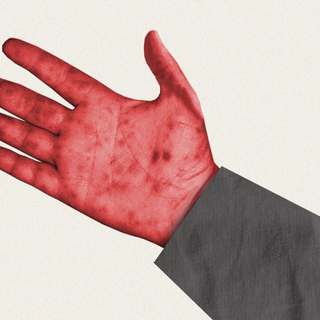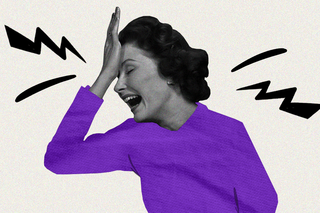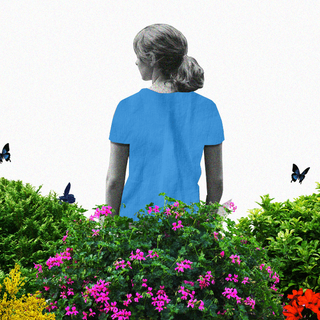
Showing Signs of Stress Makes People More Likable, Finds New Study
There could be an advantage to showcasing one’s vulnerabilities.

“Wish we could turn back time/ To the good old days/ When our momma sang us to sleep/ But now we’re stressed out.” This forms the refrain to a song by Twenty One Pilots; the stress of maturing and entering into an endless contract with capitalism saps much of what we are. The zany music aside, it’s the human condition of feeling and showing stress as an emotion that seems to strike a chord.
Stress is the grim script human life plays to. But there seems to be a hint of an evolutionary role this pit of despair plays. Turns out, that the more stressed people seem in front of others, the more others will find them likable. Their personality ratings get a boost, purely by virtue of the person coming across as more vulnerable and honest.
These were the findings of new research published in the journal Evolution and Human Behavior last week. The researchers looked at stress behaviors and how the body communicates them; think touching the face, scratching the head, biting the nails. How noticeable are these behaviors? And more importantly, how does watching someone fumble with objects or play with theirhair change one’s impression of the said individual who is visiblywracked with stress?
These questions found an intriguing answer via an experiment the researchers conducted. Step one was to induce mild stress in a group of participants. They were given three minutes to prepare for a presentation, ajob interview, and a maths test — the holy trifecta of stressors, if you may. This documented video of stressed volunteers was then shown to another set of participants. The underlying question: “How stressed is this person?”
Two things struck out: the participants were quite deft at spotting stress indicators. If Person A was stressed and showed this via furiously rubbing their hands, they were perceived to be visibly stressed. And those judged as more stressed were also considered to be the most likable people. Person A for the win, as one would say.
Showing stress is easier said than done. In our weakest moments, the emotional turbulence creates a sort of paradox: people are scared of judgment and would try to conceal weakness, but it is also in these moments that one’s vulnerabilities flow, unfiltered. But, turns out, there could be an advantage to showcasing one’s vulnerabilities.
When this chaos plays out on every spectrum — physical, emotional, biological — it serves an evolutionary role. It is well-documented in science how stress influences behavior. People engage in what is called “self-directed behavior,” like touching one’s face or fumbling with objects. “Very similar forms of stress behavior are well documented in monkeys and apes, which adds to the evidence they emerged over evolutionary time from a common ancestor,” wrote Jamie Whitehouse, a research fellow at the department of psychology at Nottingham Trent University, and one of the authors. In other words, these bodily and facial cues play a role in maintaining our social networks.
Related on The Swaddle:
The Right Amount of Stress Can Actually Strengthen Our Brains: Study
The evolutionary trait then defies the social norm which suggests that showing stress, or any gentle human emotion, is a sign of weakness. We, as a society, have built our brand on “Keep calm and move on” memes and printed merchandise. Irrespective of the nature and degree of duress in question, stress is an outlier whose existence must not be uttered or acknowledged — even as the world growls under hate crimes, work burnout, social inequality, economic insecurity, climate change, and a global pandemic. Repression of emotion carries much cultural appeal, while a healthy normalization and display of insecurity stand in jarring opposition to masculine ideas prized by patriarchy.
Based on the experiment, the “stress signals” people gave out were looked at favorably and with kindness, rather than hostility. The reason seems instinctive in some ways. “We are a highly cooperative species, more so than any other animal, and we are attracted to those who are honest about their intentions and state of mind,” explained Whitehouse. “There is nothing more honest than communicating when you are weak.”
There is a strong case for showing one’s vulnerable side. It encourages support and social bonding. Previous research conducted in 2021 also found that people who reported feeling stressed were more likely to give and receive emotional support as compared to those who reported feeling “stress-free.”
Despite the bad rep that stress gets, there are other studies to show the silver lining: stress can, when embraced with caution, also make us stronger, smarter, and happier. Then you accept one fact: we’re all stressed in ways unquantified and even unidentified.
“I think there’s an assumption that negative events and positive events are these polar opposites, but in reality they’re correlated,” said the2021 study author David M. Almeida, professor of human development and family studies at the Pennsylvania State University. “…they might be a marker for someone who has a busy and maybe full life. Having some stress is just an indicator that you are engaged in life.”
Stress tells a story of its own: of courage and struggle, of human fallibility and resilience. So sing along to an anthem of exhaustion: “My name’s Blurryface and I care what you think.”
Saumya Kalia is an Associate Editor at The Swaddle. Her journalism and writing explore issues of social justice, digital sub-cultures, media ecosystem, literature, and memory as they cut across socio-cultural periods. You can reach her at @Saumya_Kalia.
Related


How Heatwaves Can Make Us Irritable, Angry, and Even Prone to Suicidal Thoughts
